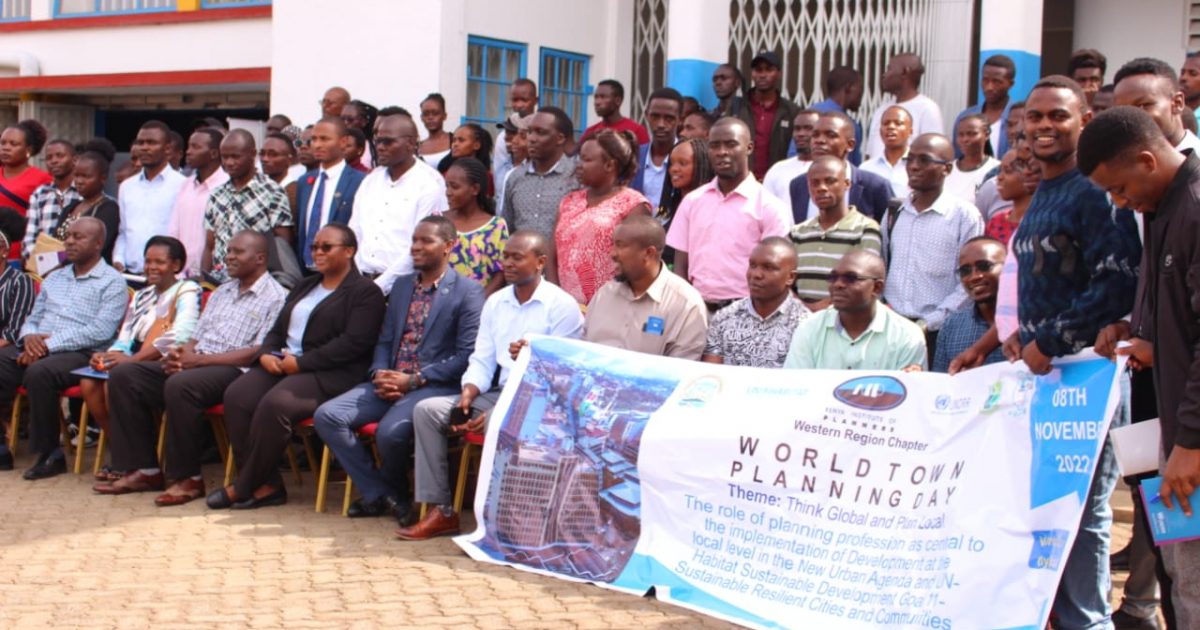Kenya Institute of Planners (KIP) Western Region Chapter has rolled out elaborate plans to sensitize and create awareness of its diverse services to spur growth and development in towns and cities in the region.
The association of planning professionals have devolved their services from Nairobi to various chapters across the country for accessibility to the people and similarly reach out to the counties for better professional services.
Dr. Moses Kola, a registered and Practicing Planner speaking during this year’s World Town Planning Day marked in Kisumu County said the decentralization of their governance would promote the profession urging county officials to embrace planning of urban centres.
He pointed out that they are concerned about the mass movements of people from rural to urban centres without proper planning.
Kola cautioned that these areas risk experiencing informalities and the emergence of disasters because of lack of planning.
“In our conferences, we advocate for people to embrace and integrate planning in their day-to-day activities so that those who are finding themselves to be in a town or city status, can live in a safe environment,” he elaborated.
Further, he intimated that planners will continuously want to bring on board other professionals from various sectors to synergize ideas to wholly achieve the development of towns in a bid to holistically address the issues.
“We look forward to having towns which are inclusive, safe, resilient and accessible to all. This can only be achieved when all professionals work together and the people participate in the process through public participation,” he emphasized.
The celebrations were marked under the auspices of this year’s theme, ‘Think Global, Plan Local,’ which recognizes and promotes the role of planners and planning in creating healthy, prosperous communities around the world.
The event brought together a consortium of organizations like the UN Office for Disaster Risk Reduction (UNDRR), UN-Habitat, Lake Region Economic Block (LREB), Universities, Civil Societies Organizations, and Private and Public Sectors drawn from 10 counties in the Western Region.
According to Kola, the Planners are keen on decentralizing their operations from Nairobi and the various chapters will be easily accessible to the people and similarly reach out to the counties for better professional services.
The KIP Western Kenya Chapter intends to come up with Planning Clinics to educate residents in different towns on what the sector entails.
“This will make them become better planning societies and communities, so that we get livable both urban and rural areas with necessary infrastructure,” explained Kola who is a lecturer at Maseno University and Director at Geoplan firm.
As KIP members, Kola opined that they are working in partnership with UN-Habitat on settlement patterns and addressing key disaster issues.
To accomplish this, they want to integrate Disaster Management in all the planning work to an extent whereby if one is preparing plans, he will have to get into key Disaster Risk and Resiliency issues that can easily be implemented.
By Rolex Omondi and Fleiss Akoko




